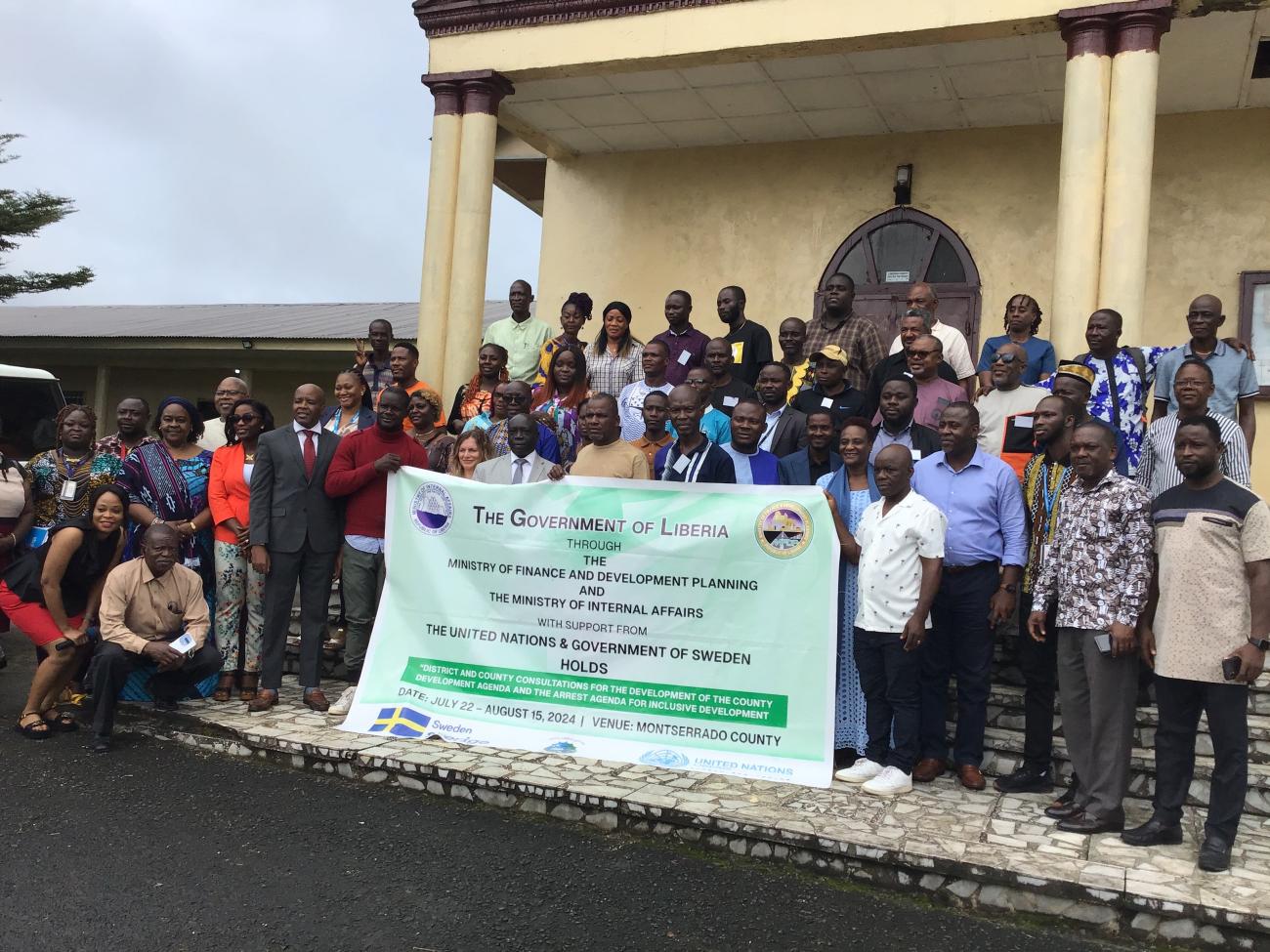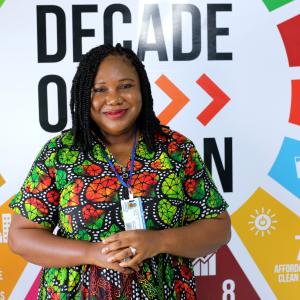The Government of Liberia, through the Ministry of Finance and Development Planning and the Ministry of Internal Affairs, has successfully completed a nationwide consultative process aimed at shaping the County Development Agenda.
The consultative meetings, which were held across the 15 counties and officially climaxed in Bentol City, Montserrado County, advanced the ARREST Agenda for Inclusive Development (AAID) that aligned with development priorities with the needs and aspirations of local communities. During the nationwide meetings, the government solicited the views and input of citizens on the country’s new development plan.
Supported by the United Nations and the Government of Sweden, the consultations gathered a diverse group of participants, including government officials, development partners, civil society representatives, and local residents, all committed to contributing to Liberia’s future.
Madam Tanneh G. Brunson, Deputy Minister for Budget and Development Planning at the Ministry of Finance, emphasized the importance of citizen involvement in the development process. Reflecting on President Joseph N. Boakai’s vision, she stated:
“His Excellency strongly believes that to genuinely participate and take ownership of any development projects or programs, we must shift away from the traditional way of planning where policymakers sit in offices and decide what people’s priorities should be."
Brunson detailed the recent nationwide consultations, saying, “Over the past three and a half weeks, the government has consulted with a broad spectrum of citizens, including civil society actors, across all 15 counties. We are determined to ensure that their voices are heard in deciding what their priorities are.”
She explained the significance of these consultations within the broader framework of district and county engagements. “We all know that district and county consultations are ongoing,” she said. “These discussions, which involve the 11 broadened sectors — comprising ministries, agencies, and commissions — are essential to charting the country’s direction over the next five years.”
Brunson elaborated on the impact of the Local Government Act, noting its role in decentralizing decision-making. “The development of the County Development Agenda and the county budget will be one of the key avenues for decision-making at the local level. Local government will now play a greater role alongside the national government in driving public services,” she explained. “This revolution will not only transfer resources but will also strengthen decentralization and improve the quality of life for communities, especially those distant from economic centers.”
She assured participants that their input would be compiled and reviewed for inclusion in the final document. “Your contributions are invaluable, and we will ensure that what you said is captured in the final document,” Brunson affirmed.
Dr. Clement Lugala Peters, United Nations Resident Coordinator a.i., praised the Liberian government’s commitment to inclusive planning and acknowledged the leadership of President Joseph N. Boakai and Vice President Jeremiah K. Koung for their active participation.
“It is both an honor and a privilege to witness this important gathering in Montserrado County,” Dr. Clement said. “The demonstrated national leadership and ownership of this process is commendable. It speaks volumes about the government’s commitment to transforming the lives of Liberians.”
Dr. Clement recognized the role of the Ministry of Finance and Development Planning in guiding the ARREST Agenda’s national and county planning process.
“The ARREST Agenda for Inclusive Development National Plan, coupled with the County Development Agendas and the Public Sector, will transform the lives of Liberians once implemented,” he added. He expressed admiration for the thorough execution of the district and national consultations.
Emphasizing the ARREST Agenda’s significance in sustainable development, Dr. Clement remarked, “This agenda will identify the country’s development priorities, contributing to peace dividends and sustainable development. It must be anchored on international commitments, particularly the SDG Transitions, which will accelerate Liberia’s progress toward the Sustainable Development Goals (SDGs).” He stressed that the change will be most visible at the county level, making local contributions vital.
Dr. Clement lauded the government’s inclusive approach, stating: “Today’s consultations in Montserrado County demonstrate the government’s commitment to developing a plan that leaves no one behind. The importance of this consultative process cannot be overemphasized. It captures the aspirations and priorities of Liberians and will guide transformative development for the country.”
In conclusion, Clement reaffirmed the United Nations’ commitment to supporting Liberia’s ARREST Agenda and Vision 2030. “The United Nations and Development Partners will align their support with the ARREST Agenda’s vision and plan. This process coincides with the Governments preparation for the Summit of The Future in September, providing an opportune moment for Liberia to present its recommendations on the global stage,” he explained.
Dr. Clement emphasized the UN’s dedication to collaborating with the government, private sector, and civil society organizations to achieve Liberia’s developmental goals.
“Together, we will support Liberia’s transformation and renewal, guided by the principles of effective development cooperation, which include strengthening ownership, deepening mutual accountability, and ensuring the sustainability of development for all Liberians,” he concluded.



















